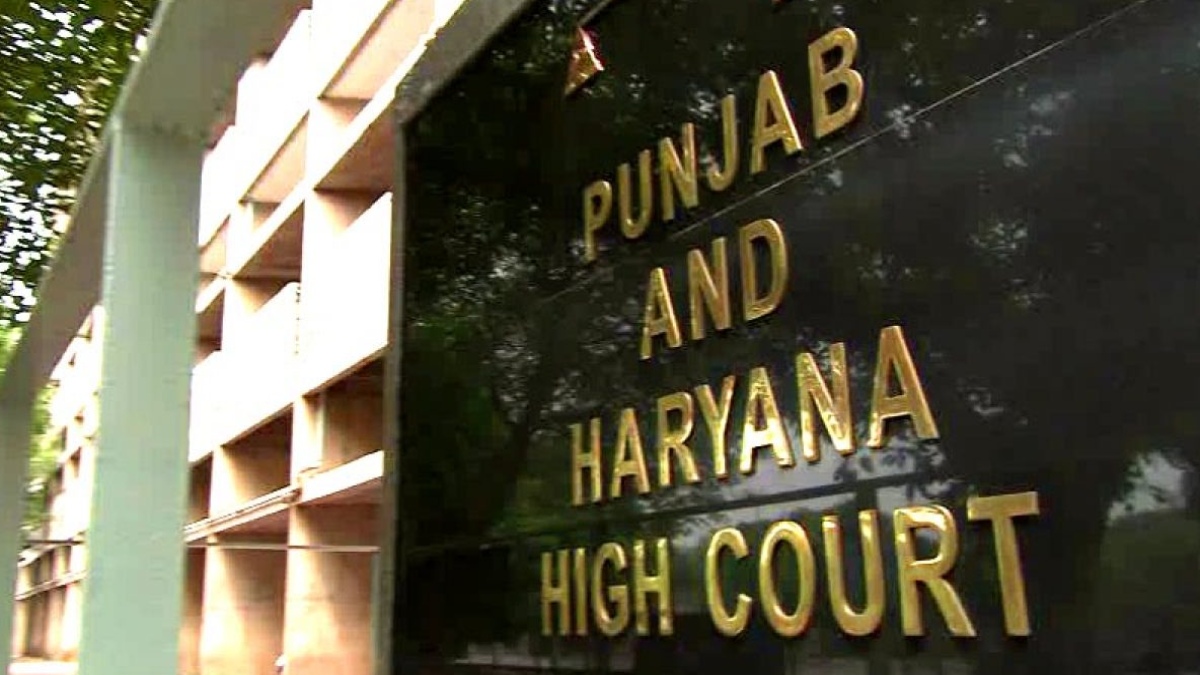While ruling on one of the most significant legal point of law directly affecting the convicts to be released on probation, we see that none other than the Punab and Haryana High Court itself has in a most learned, laudable, landmark and latest judgment titled Nasri Vs State of Haryana and Others cited as CRM-A-38-MA-2017 (O&M) and in Neutral Citation No. as 2023:PHHC:099408 has laid down 15 most important principles for the release of the convicts on probation period requiring the Trial Court Judges to keep the same in mind always while passing the sentencing order in criminal cases. It certainly deserves mentioning that the Single Judge Bench of Hon’ble Mr Justice Arun Monga while framing the principles for probation of convicts has ordered that the copy of the order be circulated by the Registry to all the Courts in the States of Punjab, Haryana and Chandigarh so that the principles enunciated and its sub paras and the relevant provisions of the Probation of Offenders Act, 1958, be brought to knowledge of all the Judges in the District Judiciary. It must be mentioned that the list of 15 principles that were highlighted by the High Court on are nature of the offence, individualized justice; criminal history; rehabilitation potential; compliance with probation terms; preventing recidivism; community ties; risk to public safety; reducing overcrowding; promoting productivity; second chance and reformation; reintegration into society; compensation to the aggrieved; probation officer assessment, and judicial discretion. It must also be disclosed here that the Punjab and Haryana High Court dismissed the plea filed by Nasir who was seeking leave to appeal against the release of the five convicts on probation who were convicted on December 1, 2016 by Additional Sessions Judge, Palwal, in an assault case.
At the very outset, the Single Judge Bench of Hon’ble Mr Justice Arun Monga sets the ball rolling by first and foremost putting forth in para 1 that, “Complainant is before this Court seeking leave to appeal inter alia against the release of accused/convicts (5 of them) on probation who were convicted vide judgment dated 01.12.2016 passed by learned Additional Sessions Judge, Palwal. They were tried in a complaint case under Sections 148, 323, 316, 452, 506 read with Section 149 but convicted only under Section 323 IPC and were released on probation under Section 4 of the Probation of Offenders Act, 1958, for a period of six months. They were directed to pay compensation of Rs.5,000/- each (total Rs. 25,000/-) to injured-Nasri, the applicant herein.”
To put things in perspective, the Bench envisages in para 2 that, “Succinct facts of the present case, as noted by learned trial Court in the impugned judgment, are that on 27.06.2012 at about 6.00 pm, complainant went to her vacant plot for tethering her cattle. Accused Aslam resisted the same due to which an altercation took place. Later on, accused Yusuf, Aarif, Arshad, Ibri, Islam, Sajid, Kallu, Jubeda, Nasi, Sabroon, Sansida and Asraf, having lathies and dandas, entered complainant’s house and attacked her. Nasri gave kick blow on her stomach, whereas Jubeda gave leg and fist blows. On hearing noises, mother-in-law of complainant came to rescue her. Ashraf gave kick blow to her mother-in-law on her stomach. When they raised hue and cry, Hari Singh and Sabir reached the spot and accused persons fled away threatening to kill the complainant. At that time complainant was four months pregnant. She was taken to hospital where after medical examination it was found that her child died in womb. Only DDR was recorded of the incident and that is where it was dropped.
2.1 A private complaint was then filed by applicant Nasri in the Court against 12 persons, including 5 private respondents No. 2 to 6 herein for offences under Sections 148, 323, 452, 316, 506 read with Section 149 IPC. The learned Ilaqa Magistrate recorded the preliminary evidence and committed the case to learned Sessions Court as the offence under Section 316 IPC was triable exclusively by the Court of Session.”
As it turned out, the Bench states in para 3 that, “The learned Additional Sessions Judge, Palwal framed charge against all the 12 accused persons for offences under Sections 148, 323, 452, 316, 506 read with Section 149 IPC. On conclusion of trail, learned Additional Sessions Judge passed the impugned judgment dated 01.12.2016 holding private respondents No. 2 to 6 namely Yusuf, Aarif, Jubeda, Nasri wife of Islam and Shamshida and convicting them for the offence under Section 323 IPC and wholly acquitting the remaining 7 accused. The aforesaid 5 convicts were extended the benefit of probation under Section 4 of the Probation of Offenders Act, 1958 and required to pay the compensation of Rs.5000/- each, total Rs. 25000/- to injured/complainant Nasri.”
Do note, the Bench notes in para 4 that, “The applicant-appellant’s grievance is two fold. Firstly; that the five private respondents have been wrongly acquitted of the charge for offences under Sections 148, 452, 316, 506 read with section 149 IPC, though they should have been convicted for these offences also; secondly; that the convicts have been wrongly given the benefit of release on probation whereas they should have been sentenced to undergo imprisonment and pay fine.”
Most notably, the Bench mandates in para 11 propounding that, “There is no gain saying that the relevant statutory provisions and the principles underlying and pertaining to release of offenders on probation, instead of straightaway sentencing them, need to be kept in mind by the Courts while passing sentencing orders.
11.1 Probation of Offenders Act, 1958 (for short “Act”) was enacted in order to save offenders in appropriate cases from being habitual offenders by providing them with a chance to reform rather than dumpling into jails. For ready reference, Section 4 of Act is reproduced herein below:
Section 4 in The Probation of Offenders Act, 1958
4. Power of court to release certain offenders on probation of good conduct.—
(1) When any person is found guilty of having committed an offence not punishable with death or imprisonment for life and the court by which the person is found guilty is of opinion that, having regard to the circumstances of the case including the nature of the offence and the character of the offender, it is expedient to release him on probation of good conduct, then, notwithstanding anything contained in any other law for the time being in force, the court may, instead of sentencing him at once to any punishment direct that he be released on his entering into a bond, with or without sureties, to appear and receive sentence when called upon during such period, not exceeding three years, as the court may direct, and in the meantime to keep the peace and be of good behaviour: Provided that the court shall not direct such release of an offender unless it is satisfied that the offender or his surety, if any, has a fixed place of abode or regular occupation in the place over which the court exercises jurisdiction or in which the offender is likely to live during the period for which he enters into the bond.
(2) Before making any order under sub-section (1), the court shall take into consideration the report, if any, of the probation officer concerned in relation to the case.
(3) When an order under sub-section (1) is made, the court may, if it is of opinion that in the interests of the offender and of the public it is expedient so to do, in addition pass a supervision order directing that the offender shall remain under the supervision of a probation officer named in the order during such period, not being less than one year, as may be specified therein, and may in such supervision order, impose such conditions as it deems necessary for the due supervision of the offender.
(4) The court making a supervision order under sub-section (3) shall require the offender, before he is released, to enter into a bond, with or without sureties, to observe the conditions specified in such order and such additional conditions with respect to residence, abstention from intoxicants or any other matter as the court may, having regard to the particular circumstances, consider fit to impose for preventing a repetition of the same offence or a commission of other offences by the offender.
(5) The court making a supervision order under sub-section (3) shall explain to the offender the terms and conditions of the order and shall forthwith furnish one copy of the supervision order to each of the offenders, the sureties, if any, and the probation officer concerned.
11.2. Objectives and principles of criminal law as envisioned in the provision ibid, apart from deterrence against committing crime against society, are inter-alia focused on the reformation of offenders, which inheres the concept of probation. Modern criminal justice system often aims to balance punishment with rehabilitation, emphasizing the potential for positive change in individuals who have committed crime. The goal of criminal law extends beyond mere punishment. While punishment serves to deter and hold individuals accountable for their actions, there is a growing recognition of the importance of addressing the underlying factors that contribute to criminal behaviour. This perspective emphasizes the potentials of offenders to reform and reintegrate into society as law-abiding citizens. Probation is one of the mechanisms used to achieve this reformation objective. In certain cases, certain offenders may be asked to remain under community supervision rather than being incarcerated. During such probation period, the offender can be put to follow certain conditions, such as regular reporting to a probation officer, participating in counselling or treatment programs and maintaining employment or education. The aim is to provide support, guidance and opportunities for the offender and to address the root causes of their criminal behaviour and develop positive life skills. Close monitoring and guidance provided during probation can help the offender make positive changes in their life and reduce the likelihood of reoffending.
11.3 Overall, the concept of focusing on reformation and using alternatives to imprisonment, such as release on probation, reflects a more holistic approach of criminal justice that takes into account the potential for positive change and the overall betterment of both the individual and society.
11.4 Probation can thus also be termed as an alternative form of punishment envisaged within the criminal justice system. In my opinion, following principles or what can be termed as potential benefits of release on probation ought to be kept in mind by the learned sentencing Courts below for exercise of judicial discretion to grant probation, provided a deserving case is made out.
a) Nature of the Offense: The severity and type of offense committed by the individual are important considerations. Less serious offenses, such as non-violent crimes or violent but arising out of self defense or first time offenses, might make an individual more eligible for probation.
b) Individualized Justice: Before grant of the benefit of release on probation, one has to take into consideration the individual circumstances of the offender viz., the nature of the crime vis-a-vis the potential for positive change. It allows for tailored sentencing that considers the unique needs and characteristics of the offender, promoting a more just and proportionate response to the offense.
c) Criminal History: A convict’s prior criminal history must be assessed to determine if they have a pattern of repeat offenses. A history of violent or serious crimes might make an individual less likely to be granted probation.
d) Rehabilitation Potential: The offender’s willingness and potential to rehabilitate play a significant role. If there’s evidence that the individual is committed to changing their behavior, participating in counseling, and addressing the underlying causes of their criminal activity, they ought to be considered for probation.
e) Compliance with Probation Terms: Convicts on probation are required to follow specific conditions, such as regular reporting to a probation officer, avoiding criminal activity, and attending counseling or rehabilitation programs. A person’s willingness and ability to comply with these terms would influence their eligibility for probation.
Please read concluding on
link4din.com/guardians-numeric-wisdom







